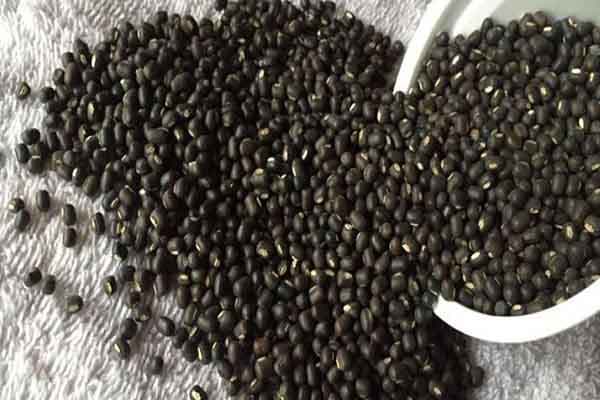Black Gram
Black gram: scientifically known as Vigna mungo, is a prominent pulse crop in India. · Black gram is grown in various states across India, including Uttar Pradesh, Madhya Pradesh, Maharashtra, Rajasthan, Andhra Pradesh, Telangana, Karnataka, Tamil Nadu, and Punjab. It is cultivated both as a kharif (rainy season) and rabi (winter) crop, with kharif being the main season for cultivation.

There are several varieties of black gram cultivated in India, each suited to different agro-climatic conditions. Some popular varieties include T9, TAU 1, KU 96-3, LBG 17, Pant U-30, and Azad-1. These varieties vary in characteristics such as yield potential, disease resistance, and adaptability to different soil types and climates.
BENEFITS OF BLACK GRAM:
Black gram is an excellent source of plant-based protein, making it an essential dietary component for vegetarians and vegans. Protein is crucial for muscle repair, growth, and overall body function.
Black gram is rich in dietary fiber, which aids digestion, prevents constipation, and promotes a healthy gut microbiome. Fiber also helps regulate blood sugar levels and may contribute to weight management by promoting satiety.
Black gram is naturally low in fat and contains no cholesteBlack gram is a good source of various vitamins and minerals, including folate, manganese, magnesium, potassium, phosphorus, iron, and zinc. These nutrients play essential roles in energy metabolism, immune function, bone health, and nerve function.
Black gram is a good source of minerals like calcium, magnesium, and phosphorus, which are essential for maintaining strong and healthy bones. Consuming black gram regularly can contribute to bone density and reduce the risk of osteoporosis.
Some studies suggest that black gram possesses anti-inflammatory properties due to its antioxidant content, which may help reduce inflammation and lower the risk of chronic sssssdiseases such as arthritis and certain types of cancer
The USDA National Nutrient Database provides approximate nutrition content for various foods, including urad dal (black gram). Here’s an overview of the approximate nutrition content of urad dal (cooked, boiled, without salt) per 100 grams:
- Calories: 347 kcal
- Protein: 25.21 grams
- Total Fat: 1.29 grams
- Saturated Fat: 0.154 grams
- Monounsaturated Fat: 0.222 grams
- Polyunsaturated Fat: 0.517 grams
- Carbohydrates: 59.62 grams
- Dietary Fiber: 18.3 grams
- Sugars: 2.09 grams
- Calcium: 138 mg
- Iron: 7.57 mg
- Magnesium: 181 mg
- Phosphorus: 351 mg
- Potassium: 983 mg
- Sodium: 38 mg
- Zinc: 2.29 mg
- Vitamin C: 0.4 mg
- Thiamin (Vitamin B1): 0.273 mg
- Riboflavin (Vitamin B2): 0.254 mg
- Niacin (Vitamin B3): 1.447 mg
- Vitamin B6: 0.22 mg
- Folate (Vitamin B9): 54 mcg
- Vitamin A: 0 IU
- Vitamin E: 0.17 mg
- Vitamin K: 0.5 mcg
